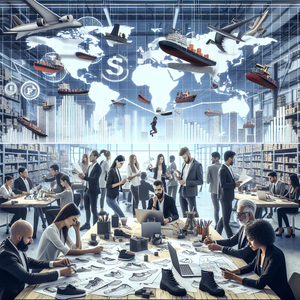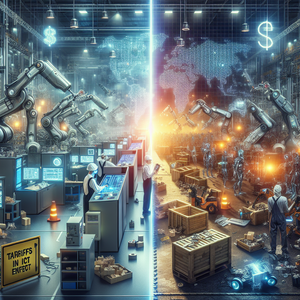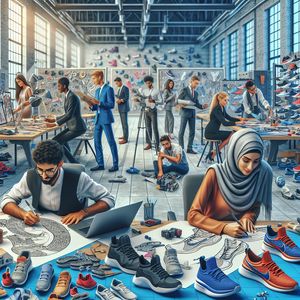
Navigating Tariffs in the US Footwear Industry: Careers Driving Innovation and Resilience in a Complex Market
The US footwear industry is at the nexus of significant economic and policy shifts, grappling with the ripple effects of rising tariffs on imported goods. With approximately 99% of footwear in the US sourced internationally, trade policies have a profound impact on the sector. Tariffs on imports from key manufacturing countries like China, Mexico, and India have led to sharp increases in production costs, which are then passed along to retailers and ultimately consumers. According to the American Apparel and Footwear Association (AAFA), tariffs on footwear are among the highest for consumer goods, ranging from 8% to 37.5%, compared to an average of 1.5% for other products. This stark disparity has driven footwear prices up by an estimated 5% annually, straining household budgets and turning a once-basic commodity into a financial burden for many Americans.
Job Summaries:
Tariff Analyst:
- In an industry where tariffs can account for up to 30% of a shoe's final price, Tariff Analysts are indispensable.
- These professionals assess the financial impact of tariff increases on supply chains, profitability, and consumer pricing.
- They also evaluate tax-efficient sourcing alternatives, such as shifting production to countries with lower tariff rates or leveraging free trade agreements like the USMCA.
- Typically, a bachelor’s degree in economics, international business, or trade compliance is required.
- Proficiency in data analysis tools and a deep understanding of international trade regulations are essential.
Supply Chain Strategist:
- The role of a Supply Chain Strategist has become more critical as companies seek to adapt their operations to unpredictable tariff landscapes.
- These professionals are tasked with optimizing sourcing, manufacturing, and logistics processes to reduce costs while maintaining product availability.
- They explore alternatives such as reshoring production to the US, working with suppliers in countries with favorable trade terms, or employing just-in-time inventory management to minimize storage costs.
- A degree in logistics, business administration, or supply chain management is crucial, along with experience in data-driven decision-making and risk mitigation.
Trade Compliance Specialist:
- Navigating the complex web of international trade laws and regulations is no small feat, particularly in an environment of escalating tariffs.
- Trade Compliance Specialists ensure that companies adhere to customs requirements, tariff classifications, and import/export laws.
- By conducting audits and overseeing documentation, they prevent costly violations and operational delays.
- A bachelor’s degree in trade, law, or international business is typically required, along with comprehensive knowledge of customs compliance and experience with tools like HTS (Harmonized Tariff Schedule) classification.
Pricing Analyst:
- With rising tariffs pushing up production costs, Pricing Analysts play a vital role in determining pricing strategies that balance profitability with consumer affordability.
- They analyze market trends, assess competitor pricing, and calculate the cost impact of tariffs to develop sustainable pricing models.
- Strong analytical skills backed by a degree in economics, marketing, or mathematics are essential.
- Experience with financial modeling and proficiency in tools like Excel or Tableau is highly valued.
Footwear Product Developer:
- As tariffs escalate production costs, Footwear Product Developers are tasked with finding innovative ways to maintain quality while reducing expenses.
- This includes sourcing alternative materials, optimizing manufacturing processes, and exploring sustainable options that may qualify for tariff exemptions or tax credits.
- A degree in fashion design, engineering, or a related field, coupled with hands-on experience in product development, is crucial.
The US footwear industry is navigating uncharted waters, with rising tariffs challenging traditional methods of operation. Yet, within this upheaval lies a chance for growth and transformation. By fostering innovation and investing in key roles—from tariff analysts to product developers—companies can build resilience and adapt to the complexities of global trade. For professionals, these shifts present a unique opportunity to shape an industry in flux. Whether optimizing supply chains, ensuring regulatory compliance, or driving sustainable product development, these roles are at the forefront of the footwear sector's evolution. In a tariff-driven market, it is the expertise and ingenuity of individuals that will determine the industry's success. As the landscape continues to shift, the footwear industry must embrace both the challenges and the opportunities, carving a path toward a future defined by adaptability and resilience.
Explore More Jobs

